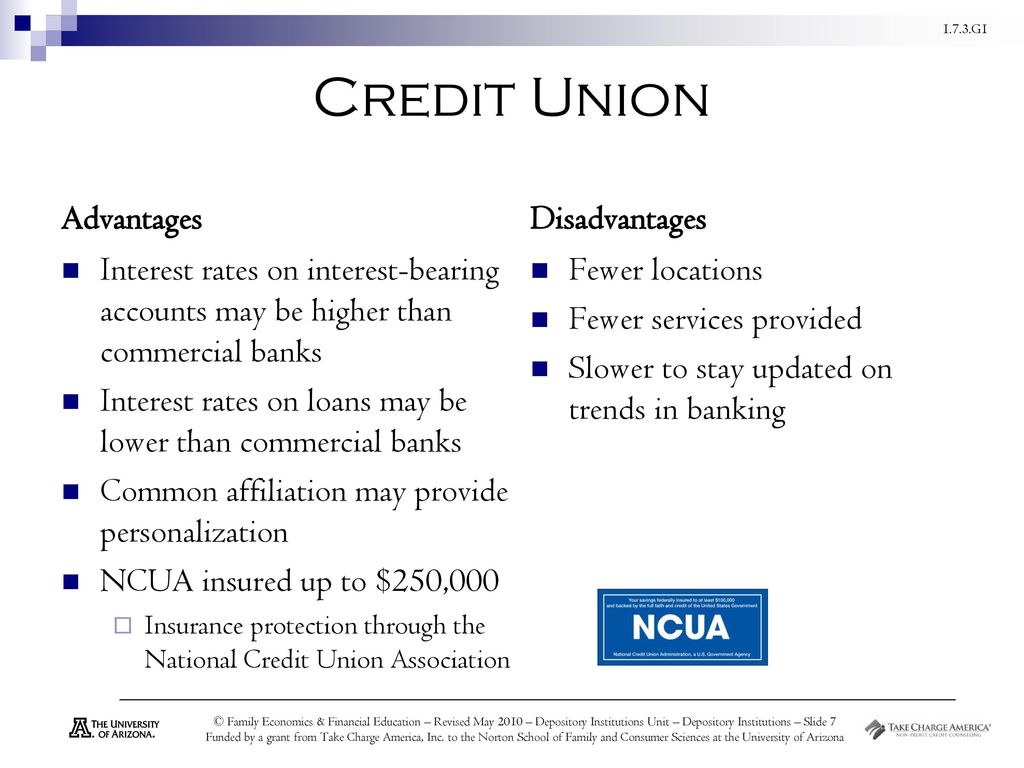Join a Credit Union in Wyoming: Personalized Financial Services for You
Join a Credit Union in Wyoming: Personalized Financial Services for You
Blog Article
The Ultimate Overview to Understanding Lending Institution

Credit report unions stand as special monetary entities, rooted in principles of shared support and member-driven procedures. As we navigate with the intricacies of credit history unions, an insightful trip awaits to lose light on these member-focused organizations and how they differ from typical banks.
What Are Credit Unions?
Debt unions are member-owned banks that provide an array of banking services to their participants. Unlike traditional banks, lending institution run as not-for-profit companies, meaning their key focus gets on serving their members rather than maximizing revenues. Participants of a credit rating union typically share a common bond, such as working for the exact same company, coming from the same community, or being part of the exact same organization.
One of the key benefits of cooperative credit union is that they frequently provide higher interest prices on financial savings accounts and reduced rate of interest rates on financings contrasted to financial institutions. Credit Unions in Wyoming. This is because cooperative credit union are structured to benefit their members directly, permitting them to pass on their profits in the form of far better prices and less charges. Additionally, cooperative credit union are known for their individualized client service, as they focus on developing relationships with their participants to understand their unique monetary needs and objectives
History and Evolution of Credit Rating Unions
The origins of member-owned monetary cooperatives, recognized today as lending institution, trace back to a time when areas sought choices to conventional financial organizations. The principle of credit score unions come from the 19th century in Europe, with Friedrich Wilhelm Raiffeisen often credited as the leader of the cooperative banking movement. Raiffeisen started the first identified lending institution in Germany in the mid-1800s, stressing neighborhood assistance and self-help principles.
The advancement of lending institution proceeded in North America, where Alphonse Desjardins developed the initial credit history union in copyright in 1900. Shortly after, in 1909, the very first united state cooperative credit union was created in New Hampshire by a group of Franco-American immigrants. These very early lending institution operated the essential concepts of common assistance, democratic control, and participant possession.
Gradually, lending institution have actually expanded in popularity worldwide because of their not-for-profit framework, emphasis on offering participants, and offering competitive monetary product or services. Today, cooperative credit union play a vital role in the monetary market, supplying community-oriented and available banking options for individuals and services alike.

Membership and Eligibility Criteria
Membership at a credit score union is generally restricted to individuals satisfying details qualification requirements based on the institution's founding concepts and governing needs. Some credit rating unions might just serve individuals who live or work Resources in a specific area, while others might be customized to workers of a certain firm or members of a particular association.
In addition, lending institution are structured as not-for-profit companies, implying that their primary goal is to offer their participants as opposed to generate earnings for shareholders. This focus on participant solution usually equates into more personalized attention, reduced costs, and affordable rate of interest rates on fundings and cost savings accounts. By fulfilling the qualification requirements and becoming a participant of a credit scores union, individuals can access a series of financial services and products tailored to their details requirements.
Services and Products Supplied
One of the crucial facets that sets credit history unions apart is the varied range of financial solutions and items they provide to their participants. Credit history unions typically give traditional financial solutions such as cost savings and examining accounts, loans, and credit rating cards.
Furthermore, lending institution usually offer practical online and mobile banking choices for members to conveniently manage their financial resources. They may offer benefits such as shared branching, allowing participants to access their accounts at other lending institution across the country. Some cooperative credit union additionally give insurance items like life, automobile, and home insurance coverage to assist members secure their possessions and liked ones.

Advantages of Banking With Cooperative Credit Union
When taking into consideration financial institutions, exploring the advantages of banking with credit scores unions reveals Wyoming Credit Union distinct benefits for members seeking customized service and competitive rates. One considerable advantage of cooperative credit union is their concentrate on tailored customer care. Unlike huge financial institutions, credit rating unions are member-owned and focus on building strong relationships with their members. This means that credit scores union personnel typically have a deeper understanding of their members' economic demands and can use tailored remedies to help them achieve their objectives. Furthermore, cooperative credit union are recognized for using affordable rate of interest on financial savings and lendings accounts. Because they are not-for-profit organizations, lending institution can typically supply reduced finance rates, greater financial savings prices, and lower costs contrasted to standard banks. This can result in substantial expense financial savings for participants in time. In general, banking with a cooperative credit union can supply a more tailored, economical, and member-centric financial experience.
Conclusion
In verdict, credit score unions stand out as member-owned financial establishments that prioritize offering their participants over making best use of profits. With beginnings dating back to 19th century Europe, credit history unions adhere click here to read to principles of common assistance and participant ownership.
Credit score unions are member-owned economic organizations that use an array of financial services to their participants. The idea of credit history unions stem in the 19th century in Europe, with Friedrich Wilhelm Raiffeisen often attributed as the leader of the participating financial activity.The advancement of debt unions proceeded in North America, where Alphonse Desjardins established the first credit history union in copyright in 1900. Credit report unions generally provide standard financial services such as cost savings and examining accounts, finances, and credit rating cards.When taking into consideration economic establishments, exploring the advantages of financial with credit scores unions exposes distinct advantages for participants looking for tailored service and affordable rates.
Report this page